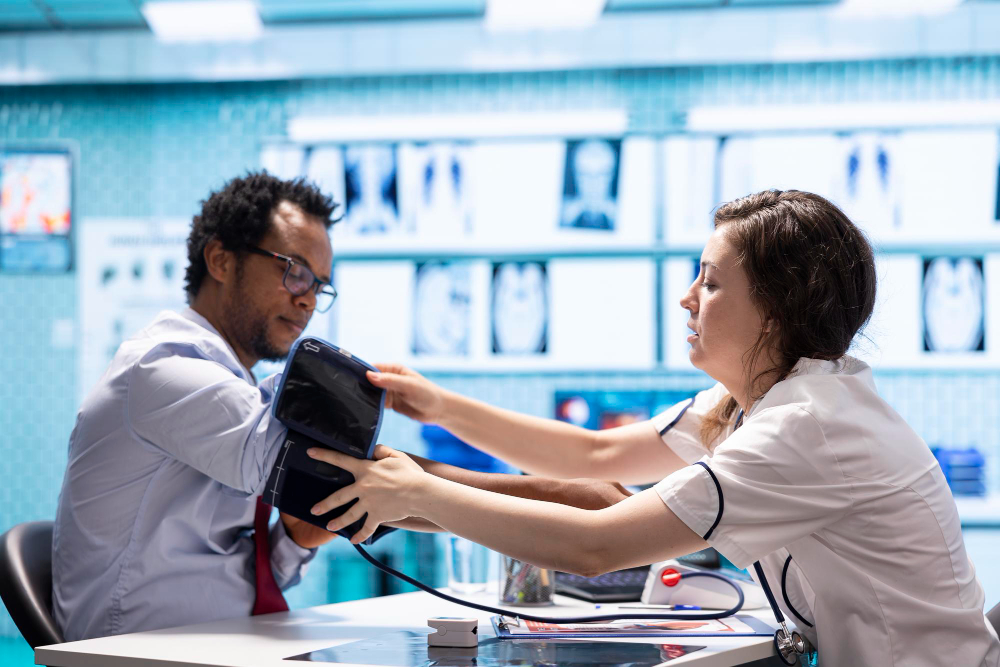
When you have a sudden illness or minor injury, figuring out where to go for care can be stressful. Your primary care physician might not have any open appointments, and the emergency room seems too extreme for a sprain or a stubborn cough. This is where urgent care clinics come in, offering a convenient middle ground.
However, there are still many misconceptions about what urgent care clinics do and the quality of care they provide. These myths can prevent people from seeking the right medical attention when they need it most. If you've been hesitant to visit an urgent care clinic in Philadelphia, PA, it might be because you've heard some of this misinformation.
This post will debunk some of the most common myths surrounding urgent care. We'll clarify the role these clinics play in the healthcare landscape, the types of services they offer, and why they can be an excellent choice for your immediate, non-life-threatening medical needs. By understanding the facts, you can make more informed decisions for your health.
One of the biggest myths is that visiting an urgent care clinic will cost significantly more than seeing your primary care physician (PCP). This concern often leads people to delay care or head to the emergency room, which is almost always the most expensive option for non-emergency issues.
In reality, the cost of an urgent care visit is typically comparable to a specialist visit and is almost always less expensive than a trip to the ER. Most urgent care clinics, including those in Philadelphia, accept major insurance plans, so your out-of-pocket cost will likely be your standard copay. For those without insurance, urgent care clinics often have transparent, upfront pricing for their services, which can be much more affordable than the unpredictable costs of an emergency room visit.
Think of it this way: an ER is equipped for life-threatening emergencies, and its pricing reflects the high cost of maintaining that level of readiness 24/7. An urgent care clinic is designed for less severe issues, allowing for a more streamlined and cost-effective operation.
Another common misconception is that the medical staff at an urgent care clinic are less qualified than those in a hospital or a primary care office. This belief can cause unnecessary worry about the quality of diagnosis and treatment you'll receive.
The truth is that urgent care clinics are staffed by licensed and experienced medical professionals, including physicians, physician assistants, and nurse practitioners. These providers are often the same professionals you would find working in hospital emergency rooms or private practices. They are fully qualified to diagnose and treat a wide range of common illnesses and injuries.
Furthermore, urgent care clinics are equipped with modern medical technology to support accurate diagnoses. Many facilities offer onsite X-rays, lab testing, and other diagnostic tools, ensuring you receive comprehensive care without needing to go elsewhere for tests. In cities like Philadelphia, PA, clinics are held to high standards to ensure patient safety and quality of care.
Many people use the terms "urgent care" and "emergency room" interchangeably, but they serve very different purposes. Confusing the two can lead to inappropriate use of medical services, resulting in longer wait times and higher costs.
Emergency rooms are designed to treat life-threatening conditions. This includes severe chest pain, difficulty breathing, major trauma, stroke symptoms, and uncontrolled bleeding. They have the specialized staff and equipment needed to handle these critical situations.
Urgent care clinics, on the other hand, bridge the gap between your primary care doctor and the ER. They treat illnesses and injuries that are not life-threatening but require prompt attention. Examples include:
Choosing the right facility is crucial. Going to the ER for a minor issue can lead to very long waits, as patients with life-threatening conditions will always be prioritized. An urgent care clinic can see you much more quickly for these less severe problems.
Some people worry that visiting an urgent care clinic means their primary care physician (PCP) will be left out of the loop regarding their health. They fear a lack of continuity in their care.
This is a valid concern, but most urgent care clinics prioritize communication and collaboration. They function as a partner in your healthcare, not a replacement for your PCP. After your visit, a reputable urgent care clinic will typically send a summary of your diagnosis, treatment, and any test results to your primary doctor. This ensures your medical records remain complete and your PCP is aware of any new health developments.
If you don't have a PCP, an urgent care clinic can also be a valuable resource. They can provide referrals to primary care doctors or specialists in the Philadelphia area, helping you establish a long-term healthcare home.
While it's true that urgent care is a great place to go for common illnesses like the cold or flu, their services extend far beyond that. Many people are surprised to learn about the wide array of medical issues that can be handled at an urgent care facility.
In addition to treating illnesses and minor injuries, many clinics offer a range of preventive and diagnostic services. These can include:
This broad scope of services makes an urgent care clinic a versatile and convenient option for many of your family's health needs, especially when you can't get a timely appointment with your regular doctor.
Urgent care clinics fill a vital role in modern healthcare by offering accessible, affordable, and high-quality medical services for non-life-threatening conditions. By clearing up these common myths, we hope you feel more confident in choosing the right care setting for your needs.
If you're in the Philadelphia, PA, area and need prompt medical attention for an illness or injury, don't let misinformation hold you back. An urgent care clinic can provide the timely and professional care you need to get back on your feet.
If you're looking for an urgent care clinic in Philadelphia, PA, contact Vital Urgent Care today to request an appointment.